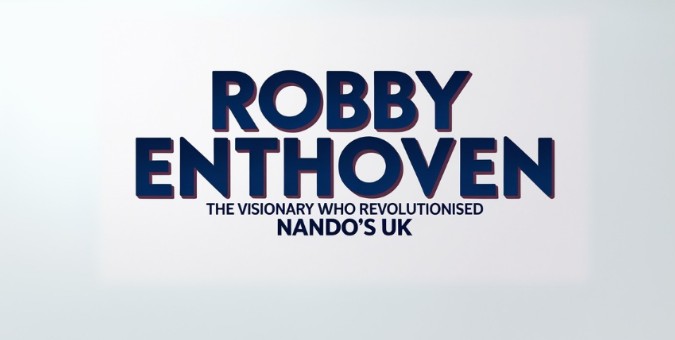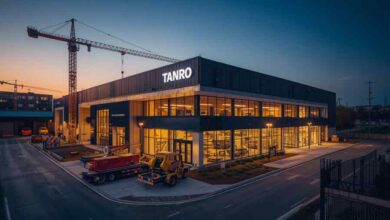
Robby Enthoven, born into the influential Enthoven family of South Africa, grew up surrounded by entrepreneurship and innovation. His father, Dick Enthoven, was a well-known businessman with a keen eye for identifying and nurturing promising ventures. This family environment instilled in Robby an innate understanding of business strategy, risk-taking, and the value of creating long-term brands. While details of his early schooling remain private, his later achievements show the deep influence of his upbringing, blending South African heritage with a truly international perspective.
Table of Contents
ToggleThe Enthoven Legacy and Connection to Nando’s
The Enthoven family’s connection to Nando’s began when Robby’s father saw the potential of a small peri-peri chicken restaurant in Johannesburg. Dick Enthoven’s investment and strategic guidance helped Nando’s grow beyond its humble beginnings. Robby was inspired by this story of opportunity and expansion. He would later play a pivotal role in extending the Nando’s vision into one of its most successful markets – the United Kingdom.
Taking Over Nando’s UK Operations
In the early 1990s, Robby Enthoven took the reins of Nando’s UK operations. At the time, the brand was relatively unknown in Britain and operated more like a traditional takeaway restaurant. Robby saw an opportunity to transform the brand into something unique. His strategy was bold: he reimagined Nando’s not merely as a place for fast food, but as a “fast-casual” dining experience. This meant combining the convenience of quick service with the quality and atmosphere of a full-service restaurant.
Reimagining the Dining Experience
One of Robby’s key innovations was the introduction of part-waited service. Customers would order at the counter, but their food would be brought to their table, creating a relaxed yet efficient experience. This approach differentiated Nando’s from both fast-food chains and traditional sit-down restaurants. It appealed to a broad demographic – from students and young professionals to families looking for quality food without the formality of fine dining.
Branding and Culture
Robby Enthoven understood that Nando’s success would depend not just on food but on creating a strong brand identity. Under his leadership, the restaurants adopted a vibrant, South African-inspired interior design, full of colour and energy. The brand developed a distinctive voice – witty, slightly cheeky, and relatable – in its marketing campaigns. This unique personality helped Nando’s become more than just a place to eat; it became a cultural phenomenon.
Rapid Expansion Across the UK
During Robby’s tenure, Nando’s UK grew from a small handful of outlets to a nationwide favourite. The chain expanded into major cities and towns, creating a loyal customer base. The concept of flame-grilled peri-peri chicken caught on quickly, and soon Nando’s became a staple of British high streets and shopping centres. By the early 2000s, the brand had become synonymous with casual dining excellence.
Recognition and Awards
Robby’s visionary approach did not go unnoticed. In 2002, he was awarded the prestigious Catey Group Restaurateur of the Year, a significant recognition within the UK hospitality industry. This award highlighted his ability to blend operational excellence with innovative customer experience, establishing Nando’s as one of the most exciting restaurant brands in the country.
Business Philosophy and Leadership Style
Central to Robby Enthoven’s success was his leadership philosophy. He believed in empowering staff and creating a strong team culture. Nando’s became known for its focus on employee development, offering training and opportunities for growth. Robby recognised that a positive workplace culture would directly influence customer satisfaction. His people-first approach ensured that Nando’s was not only profitable but also a company that attracted and retained passionate employees.
Impact on the UK Restaurant Industry
Robby’s transformation of Nando’s helped define the “fast-casual” restaurant category in Britain. His blend of high-quality food, unique atmosphere, and efficient service set a benchmark for other chains. Competitors studied Nando’s model, and the UK dining scene evolved as other brands sought to replicate its success. Robby Enthoven’s strategy effectively reshaped how Britons viewed casual dining.
Family Business Continuity and Global Influence
While Robby focused on the UK, the Enthoven family’s influence extended globally. Nando’s expanded to multiple continents, including Australia, Canada, and the United States. The family’s other business interests, such as Hollard Insurance and the Spier Wine Farm, demonstrated a diversified approach to entrepreneurship. Robby’s success with Nando’s UK reinforced the family’s reputation as visionary investors and business leaders.
Later Career and Legacy
After establishing Nando’s UK as a dominant brand, Robby eventually stepped back from day-to-day operations. However, his influence continues to shape the company’s culture and strategy. The systems and customer experience model he built remain at the heart of Nando’s identity. Today, Nando’s continues to be one of the most recognised names in casual dining, thanks to the foundation laid by Robby Enthoven.
Personal Traits and Values
Those who have worked with Robby describe him as a visionary leader with an entrepreneurial spirit. He combines creative thinking with practical execution, a trait that allowed him to innovate while keeping operations efficient. His commitment to quality, culture, and customer satisfaction reflects values that resonate across industries. Robby’s career serves as an example of how bold ideas, when paired with disciplined execution, can transform a niche concept into a national success.
Lessons from Robby Enthoven’s Journey
Robby Enthoven’s story offers valuable lessons for aspiring entrepreneurs and business leaders. Firstly, it highlights the importance of spotting opportunities in established markets – he identified the gap between fast food and formal dining and created a new category. Secondly, his focus on brand personality shows how storytelling and culture can elevate a business beyond its product. Finally, his emphasis on employee engagement demonstrates that investing in people is key to long-term growth.
Continuing Relevance
Even as the UK dining scene continues to evolve, the principles Robby introduced remain relevant. The fast-casual concept he championed is now a global trend, with countless brands following the path he pioneered. Nando’s enduring popularity is a testament to the strength of his vision and the soundness of his business model.
Conclusion
Robby Enthoven’s impact on the UK restaurant industry cannot be overstated. Through strategic vision, innovative service models, and a keen sense of branding, he turned Nando’s from a little-known South African takeaway into a household name in Britain. His journey is not merely a story of business success but a lesson in how creativity, culture, and leadership can combine to reshape an entire industry. For entrepreneurs and business enthusiasts, the legacy of Robby Enthoven stands as an inspiring example of how to transform a good idea into a game-changing enterprise.



